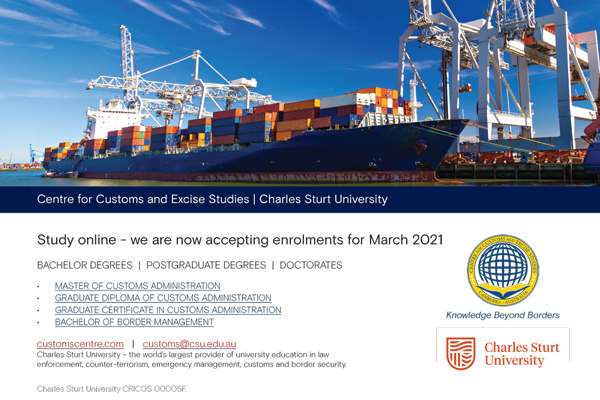New WCO Strategic Plan in the pipeline
21 February 2019
By Ricardo Treviño Chapa, Deputy Secretary General, WCOEvery Organization, whether public or private, national or international, must have a Strategic Plan, in other words a roadmap for achieving its objectives. When such a document is missing, or not reviewed regularly, each element of an Organization tends to work on its own, sometimes regardless of the wider goals that the Organization is seeking to achieve. The WCO is no exception, and its Secretariat needs a strategic plan to carry out the Organization’s day-to-day activities along the right lines, whilst ensuring that the efforts of its staff are fully focused on the achievement of identified objectives.
The WCO is currently developing its Strategic Plan 2019-2022, with the Organization’s Deputy Secretary General acting as the coordinator between the Secretariat and WCO Members. The first phase of what is called a “strategic planning cycle” is to draw conclusions on the implementation of the existing strategic plan. It was, therefore, decided that the best way forward was to evaluate the alignment of the current Strategic Plan with the objectives and priorities set by WCO Members.
The current Strategic Plan comprises over 70 tactical activities and over 90 key performance indicators, each of which must be examined and amended if necessary to take account of WCO Members’ new concerns and priorities. To assess where we stand, the level of relevance of these tactical activities has been evaluated via a survey and, for the first time in the history of the Organization, six regional workshops have been held in each of the WCO’s regions to discuss the results of the survey, determine priorities and strategic initiatives, and define the main deliverables and strategic indicators, thereby allowing WCO Members to more easily follow up on the activities carried out by the Secretariat. It is trusted that this engagement process will result in a high-level policy document that will be useful not only to the Secretariat, but also to the Members of the WCO.
The second phase of a strategic planning cycle is to define a new strategy. From consultations with its Members, it has become evident that the WCO should more clearly communicate the message that “it is an Organization that helps its Members to overcome their challenges, take advantage of opportunities and achieve their strategic goals by providing them with global standards and capacity building, as well as by facilitating cooperation among them.”
In devising the new Strategic Plan, it is imperative that we consider not only what should be addressed, but also how we are going to address it, as part of the “implementing” phase. All strategic plans have annual operational plans with specific activities and performance indicators. After discussing strategy level items during the December 2018 meeting of the WCO Policy Commission and having made the necessary amendments to the existing Plan, an Operational Plan for the period July 2019 to June 2020 will now be drafted. It will be discussed by the WCO’s Audit Committee and Finance Committee at their next meetings.
One of the elements being considered for inclusion in the new Strategic Plan is a “strategic map.” Such a map is seen as the best way to communicate the WCO’s strategy to all its stakeholders. It will also include updated priorities and new emerging initiatives. The use of new technologies, performance measurement, the exchange of information between Customs administrations and the private sector, the role of Customs in the fight against terrorism, and the validation of the implementation of WCO standards are among the topics that have been raised during recent discussions.
The new Strategic Plan will be submitted to the WCO Council for consideration at its next session in June 2019. Once endorsed, it will be essential to ensure that the document’s contents are well known both inside and outside the Organization – a task that will also require the active participation of all WCO Members. After its adoption, a new cycle will begin, namely the “learning” phase, during which achievements will be monitored and activities evaluated.
More information
communication@wcoomd.org
